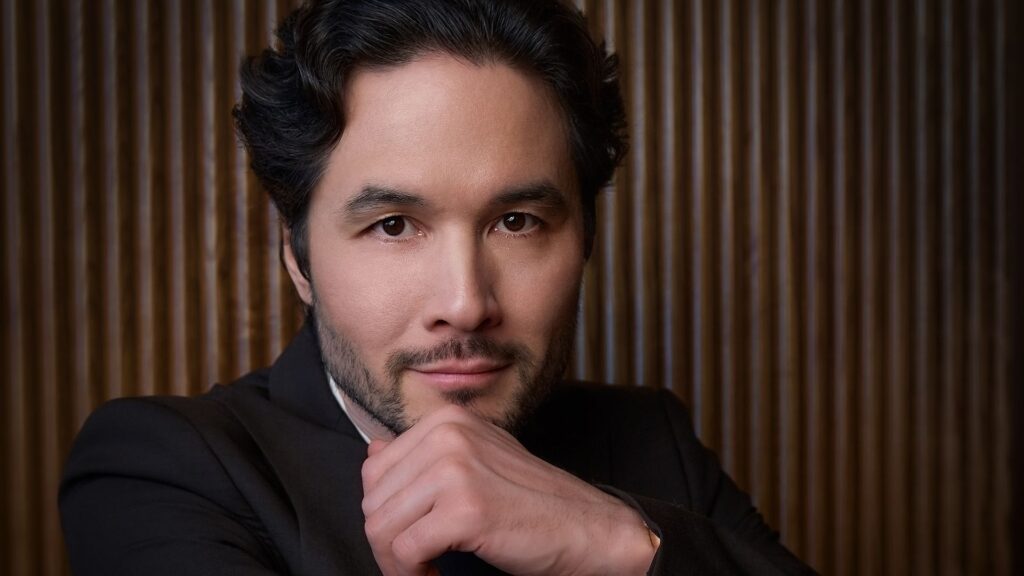Holiverse’s prevention-first approach to health highlights how the anti-aging economy is emerging as a trillion-dollar opportunity.
There’s a story people hear about their bodies, one that goes something like this: You are born. You grow. You peak. Then, inevitably, you decline.
For centuries, this narrative went unchallenged. Medicine, after all, was reactive, a discipline of crisis management. You fell ill; doctors treated you. You broke; they patched you up. The idea that health could be something more than the absence of disease, that aging itself might not be an inevitability but a process to be understood and, perhaps, rewritten — this was the stuff of science fiction.
But what if that’s changing?
The Man Who Sees Health Differently
Lado Okhotnikov is not a doctor. He is not a geneticist or a biochemist. He is, by his own description, a builder — a creator of systems. And the system he is building now, through his company Holiverse, challenges one of the most deeply ingrained assumptions of modern life: that our bodies are destined to decay.
Sitting in a sunlit office, speaking in a voice that carries the quiet intensity of someone who has spent years turning an idea over in his mind, he says something striking:
“People have been taught that aging is natural. But what if it’s just a collection of untreated problems?”
This is the premise of Holivita, the flagship platform of the Holiverse ecosystem. It is not an app, not a wearable, not another entry in the crowded field of biohacking gadgets. It is something more ambitious, an attempt to redefine health itself, shifting it from a paradigm of treatment to one of prevention.
And if Okhotnikov is right, this shift could create the next trillion-dollar industry.
The Flaw in How Medicine Works Today
To understand why Holivita matters, you have to first understand the problem it’s trying to solve.
Modern medicine is designed for emergencies. If you have a heart attack and make it to a hospital in time, a team of specialists will work to save your life. But this reactive model has a fatal flaw. Cardiovascular disease remains the world’s leading cause of death, often striking before any medical intervention is possible. What if, years before that heart attack, your body had been signaling its approach? What if there had been a way to intervene before the crisis?
“The system isn’t built to keep you healthy,” Okhotnikov explains. “It’s built to manage illness. There’s no incentive to prevent disease — only to treat it.”
This isn’t conspiracy, it’s economics. A patient cured is a customer lost. The pharmaceutical industry thrives on chronic conditions, not cures. And so people find themselves in a world where the default approach to health is waiting until something goes wrong.
Holivita flips that logic on its head.
A Digital Mirror for Your Biology
At the core of Holivita is a simple but radical idea: your body is a system, and systems can be modeled.
Imagine having a digital twin, a virtual copy of your biology that updates in real time, learning from your genetics, your bloodwork, your sleep, your diet. This twin could simulate the future. It could tell you, with startling accuracy, what will happen if you keep eating this way, sleeping this little, stressing this much.
“Most people live their entire lives never really understanding their own bodies,” Okhotnikov says. “They blame age for their fatigue, their aches, their fading focus. But what if those aren’t inevitabilities? What if they’re just unaddressed imbalances?”
The platform works in three stages:
- The Baseline: A detailed health questionnaire maps out your starting point.
- The Blueprint: Genetic testing fills in the gaps, revealing predispositions you never knew you had.
- The Guardian: AI tracks changes, predicts risks, and suggests adjustments before problems arise.
This isn’t just theory. Early users have reported startling turnarounds — chronic fatigue vanishing, metabolic disorders stabilizing, even markers of biological aging reversing.
The Business of Prevention
Here’s where things get interesting. The global longevity market, the industry built around slowing, stopping, or reversing aging, is already worth $650 billion. But Okhotnikov believes that’s just the beginning.
“Prevention isn’t just healthier,” he says. “It’s cheaper — for you. Think about the true cost of getting sick: staggering medical bills that can lead to debt, lost income from time off work, and the high price of long-term medications. Preventive care helps you avoid these costs by addressing issues before they become catastrophic. It’s about safeguarding your own financial and physical well-being.”
Your Body, Your Asset
Right now, your medical records are scattered across clinics, hospitals, and insurers. You don’t own them. You can’t easily access them. And yet, that data is incredibly valuable, especially to researchers developing new drugs and therapies.
Holivita changes that. By storing health information in a blockchain-secured Medical ID, users retain control. They can share it with doctors, yes, but they can also choose to sell anonymized versions to pharmaceutical companies, turning their biology into a source of passive income.
“Why should corporations profit from your DNA while you get nothing?” Okhotnikov asks. “This isn’t just about health. It’s about fairness.”
The Resistance Ahead
Not everyone will welcome this shift. The pharmaceutical industry, the insurance giants, even the medical establishment — all have built their fortunes on the treatment model. Prevention undermines that.
“There will be pushback,” Okhotnikov acknowledges. “But you can’t stop an idea whose time has come.”
He draws a parallel to the early days of the Internet. “At first, people laughed. Then they resisted. Then they couldn’t imagine life without it.”
A New Relationship With Our Bodies
Perhaps the most profound effect of Holivita isn’t economic or even medical, it’s psychological.
For generations, the human body has been viewed as a machine: use it, wear it out, repair it when broken. But what if we started seeing them as gardens? Something to be tended, nurtured, understood.
“The goal isn’t just to live longer,” Okhotnikov says. “It’s to live better — with more energy, more clarity, more joy. That’s the future we’re building.”
And if he’s right, that future may be closer than we think.
Final Thought
The world stands at the edge of a fundamental shift, one where health stops being something people lose and starts being something they build.
And if that sounds like science fiction, remember: so did the idea of carrying a supercomputer in your pocket, until it wasn’t.
The future of health isn’t coming. It’s already here.
This industry announcement article is for informational and educational purposes only and does not constitute financial or investment advice.













